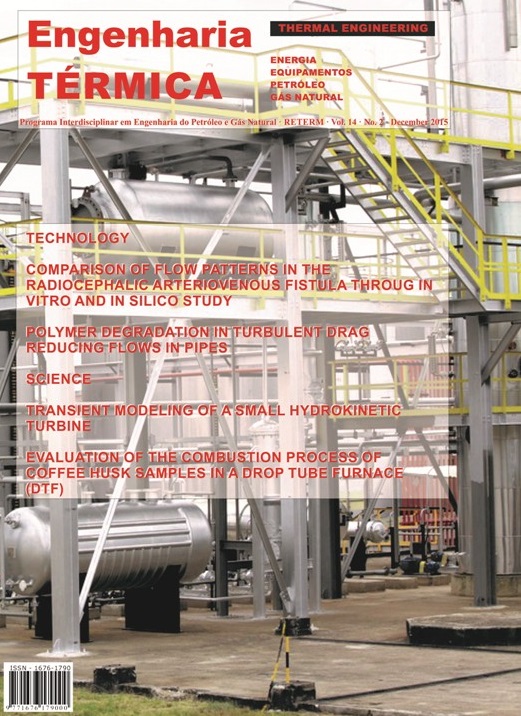ANALYSIS OF THE ELECTRICAL CHARACTERISTICS IN MULTIPHASE FLOW THROUGH THE WIRE-MESH SENSOR
DOI:
https://doi.org/10.5380/reterm.v14i2.62139Keywords:
capacitive sensor, holdup, frequency, oil-water-Gas, volumetric fraction, wire-meshAbstract
Many studies on the characterization of electrical properties of multiphase fluid are found in the literature. One of the main motivations of these efforts has been the development of instrumentation for the measurement of volumetric fraction using electrical sensors. Although one can find a variety of instruments for that purpose, relatively few works in the open literature present studies on the best range of measurement frequency and its effect on permittivity models. An experimental and theoretical study is presented, where the best frequency to measure the volumetric fraction in two and three-phase mixtures is selected. Several permittivity models are applied to measure the volumetric fraction. The fluids used in the experiments were tap water, deionized water, mineral oil, isopropyl alcohol and hexane. Known volumes of fluids were mixed until obtaining a homogeneous mixture. The data were taken by a 1×4 wire-mesh sensor (WMS) immersed in the mixture. The WMS had a gap between planes of 1.4 mm, the wires were 3 mm apart from each other and the diameter of the wires was of 0.2 mm. The experimental system consisted of a generator, an oscilloscope and conditioning circuits (formed by operational amplifiers). A frequency scan was performed between 7000 Hz and 20 MHz for each mixture. A total of 60 logarithmically spaced frequencies were applied.
Downloads
Published
How to Cite
Issue
Section
License
Direitos Autorais para artigos publicados nesta revista são do autor, com direitos de primeira publicação para a revista. Em virtude da aparecerem nesta revista de acesso público, os artigos são de uso gratuito, com atribuições próprias, em aplicações educacionais e não-comerciais.



